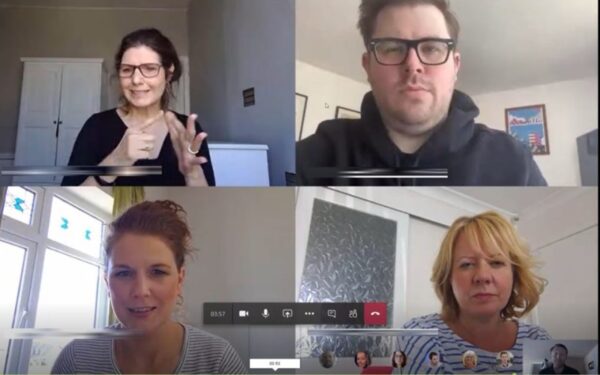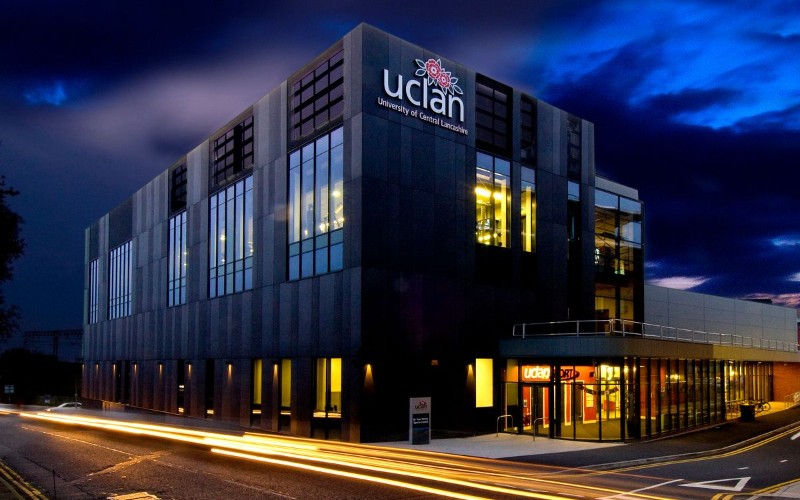As home-schooling comes to an end, parents up and down the country will no doubt be heaving a huge sigh of relief this week as homes fall silent and classrooms regain that familiar buzz and chatter.
It’s been a massive challenge for everyone – but tech has played a vital role in ensuring that many children were able to continue their education despite the restrictions caused by COVID-19.
Jenny Brookfield looks at the tech businesses that have enabled learning from home to happen – and asks whether some of the new ways of learning will hang around. No.3: University of Central Lancashire
Personalised learning, which could include studying without stepping foot on campus, could be the future of university education, according to an institution that has been leading the way during the pandemic.
The University of Central Lancashire says technology has demonstrated what can be done and that flexible learning is here to stay.
“This last 12 months has definitely proven that we can, if we want to, offer students more flexibility in how, when and now through which mechanism they engage with learning,” says Kevan Williams, technology enabled learning and teaching team manager at the Preston university. “Personalised learning is what students will say has become a benefit, made possible through tech, which is really interesting.”
The university began a five-year digital transformation project four years ago to invest in people, the physical environment and practices, forming a partnership with Microsoft. This included £4m investment in developing creative learning spaces and £2m spent on Microsoft Surface devices to support the transition from traditional desktop computing to a more contemporary work and study experience, as well as launching a DigiLearn staff development programme to build confidence in digital practice.
https://businesscloud.co.uk/is-lfh-here-to-stay-tassomai-founder-edtech-had-a-duty-to-step-up-during-pandemic/
“COVID came along but we’d already made these investments so people could work from home and felt confident doing so,” Williams says. Staff had already begun to work on Teams and investment in equipment for classrooms and lecture halls meant teaching could be recorded, resulting in a smooth transition when lockdown one began.
Some students who were on courses that demanded a physical presence, such as clinical skills, have remained in university, with most reverting to learning from home. The programme, and staff’s willingness to engage – as well as the establishment of online communities where they can share ideas, has meant UCLAN has continued to raise the quality of the online experience over the past 12 months.
“We want to capitalise on what we know is working well and amplify these ideas across the organisation,” says Williams.
Education for a university student over the past year has fallen into two categories – synchronous, real-time involving Teams, and asynchronous, virtual learning that is available anytime a student should need it.

“We were well ahead of the curve, as we were already used to using Teams, and we also brought in British Sign Language (BSL) interpreters to sign in real-time for students who needed it, to ensure they felt comfortable and confident with learning from home,” he says.
Lectures use a variety of methods to simulate a real environment, such as the use of tech to form break-out rooms so small groups can discuss the content introduced by the lecturer. Other programmes such as Wakelet and Padlet allow students to collate course material to aid their learning.
These examples of good practice have positioned the university as a leading sector collaborator through the DigiLearn Sector community, a 1,400-strong network of educators and industry leaders, where work can be shared.
Looking ahead to the time when face-to-face learning will be possible across the board, Williams believes these experiences will result in a new acceptance for distance learning.
“We’re going to be working towards a blended delivery in September,” he says. “All classrooms now have the ability to connect to a device, microphone and camera so we can cater for students in class and online.”
https://businesscloud.co.uk/is-lfh-here-to-stay-meet-edtech-tapestry-an-emergency-service-during-covid-19/
With a large cohort of overseas students having stayed in their own countries to study at UCLAN during this academic year, could this be set to stay?
“By virtue of what the tech allows us to do, students overseas will be able to study at UCLAN remotely because we’ve proven it can work,” Williams adds.
“Our role is to focus on the quality of that online delivery so that it’s not just a simple shift to online learning but a quality shift to online.”

